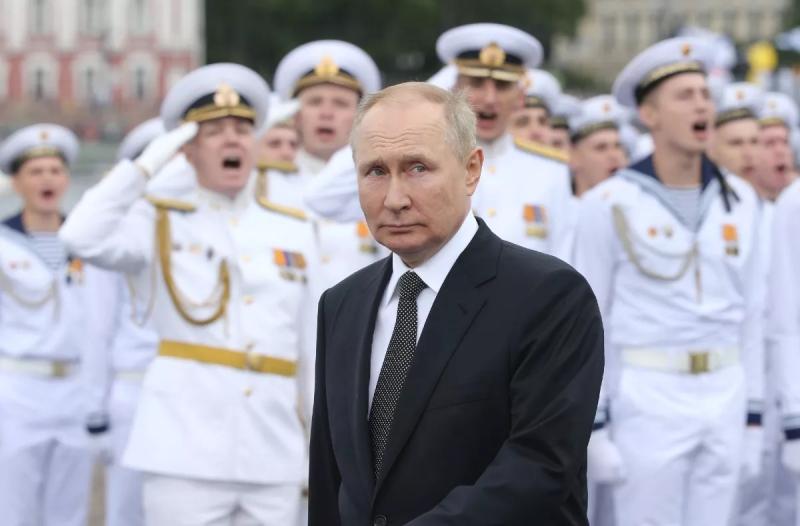Multiple Russian Submarines Moving in 'Strange Routes,' U.K. Says
By: Ellie Cook (Newsweek)


A real threat? The British playing up AUKUS to spend more on its own navy? The US Navy bolstering its $200 billion budget request for 16 more submarines? Governments don't release secret information unless it serves their own purpose. And that ulterior purpose usually involves a lot of money.

Russian submarines have been traveling on "strange routes" that deviate from those deemed typical by Western defense officials, according to British Defence Secretary Ben Wallace.
Wallace said the U.K. had been tracking Russian submarines "in the North Atlantic and in the Irish Sea and in the North Sea doing some strange routes that they normally wouldn't do," Wallace said Tuesday while speaking to the media during a visit to Washington, D.C. The British Defence Ministry confirmed the remarks to Newsweek on Wednesday.
Alarm bells have been ringing among NATO allies about Russia's underwater fleet, which one expert previously told Newsweek is "the critical challenge that the United States faces." There have been increasing indications of Russian submarines operating off U.S. and Mediterranean coasts, in what appear to be "Soviet-style submarine deployments" reminiscent of the Cold War.
Russian President Vladimir Putin looks to naval officers during the Navy Day Parade, on July, 31 2022, in St. Petersburg, Russia. The U.K. has detected Russian submarines "doing some strange routes that they normally wouldn't do," British Defence Minister Ben Wallace said on Tuesday.Contributor/Getty Images
Russian state media reported earlier this year that a new "division" of submarines carrying nuclear-capable Poseidon "super-torpedoes" would be created for the Pacific Fleet as early as next year. In recent years, Russia has looked to upgrade its submarine fleet and has about 58 vessels making up one of the world's largest underwater forces, according to the non-profit organization Nuclear Threat Initiative.
Last week, Russia began large-scale military drills of its Pacific Fleet, described by Russian Defense Minister Sergei Shoigu as a "surprise inspection" in a Kremlin readout of a conversation with Russian President Vladimir Putin. More than 25,000 troops, 89 aircraft and 12 submarines were involved in the exercises on April 14, he said.
Putin, in response to Shoigu's report, said the naval assets could be used "elsewhere" during the ongoing war in Ukraine, adding that the navy's development "remains relevant."
In May 2021, Wallace told British newspaper The Telegraph that Russian submarines surrounded the British coastline, branding Moscow as London's "number one adversary threat." At least seven Russian naval ships and a kilo-class submarine were seen around the U.K., including in the Irish Sea for the first time, in the year up to the report, according to the newspaper.
"We're regularly visited by nosy Russian ships, and we are regularly visited now by a number of Russian warships," Wallace added.
Earlier this week, Wallace met with U.S. Defense Secretary Lloyd Austin, who lauded the AUKUS trilateral defense pact as one that "will break down barriers and usher in a new era of U.S.-U.K. defense cooperation." The tripartite security agreement between the U.S., U.K. and Australia, announced in September 2021, will furnish Canberra with nuclear-powered submarines, understood to be a move countering China's influence in the Indo-Pacific.
Newsweek has reached out to the Russian Defense Ministry via email for comment.




A revival of the cold war? Maybe. A prelude to China making its move? Maybe. But more likely than not this about the military begging for more money from the public coffers. Tax the rich, spend more money, fight the enemy. That is the military mindset, after all.